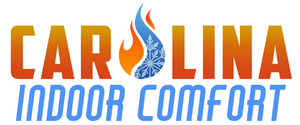Heat Pumps

A heat pump system, also known as a heat transfer device, functions in a manner similar to that of a typical air conditioner (HVAC). Heat pumps popularity is rapidly growing because it transports hot air from one point to another. In order to heat a house using a system of fans and heating and cooling coils using a very little amount of energy compared to an HVAC system, this method pulls air from a location with a low temperature and pumps it into an area with a high temperature from the ground or air. There is a vast number of different types of heat pumps available from us, each with individual advantages.
Different Heat Pump Option
Heat pumps that circulate air rather than water are a typical choice. These devices use a fan or refrigerant system inside the box unit to circulate heat from the outside into your home's air ducts through refrigerant-filled coils. To heat and cool your home, a ground source heat pump extracts heat from the earth or an underground water source. This is accomplished by capturing heat from underground pipes that are filled with water. Instead of using electricity, absorption heat pumps harness power from solar, propane, geothermal-heated water, or natural gas. These kinds of heat pump systems are often reserved for larger properties, such as apartment complexes or residences with larger floor plans.
Heat Pump Advantages
Heat pumps offer various advantages beyond being a two-in-one solution. First and foremost, heat pumps are very efficient, a heat pump may reach as high as 300% or more efficiency, depending on the configuration of your home. However, even if the cooling capacity isn't quite as great, it's still on par with even the most advanced high-efficiency air conditioners. Mini-split systems can be outfitted with heat pumps. A heat pump attached to an air handler can be replaced with lines of refrigerant flowing to each room for cooling or heating needs. Because you can regulate the temperature of each room independently, you'll be able to save money by letting the rooms that aren't being utilized sit at a lower temperature. Heat pumps don’t require combustion or heating components, mini-splits and ducts are less likely to fail and need less repair and maintenance than furnaces.
Heat Pump Maintenance Tips
Our specialists in heating, ventilation and air conditioning are qualified to do any and all maintenance on your heat pump, and we generally suggest professional maintenance once per year. The best time for any heat pump maintenance is typically done in the spring or autumn before you begin to use your heat pump significantly during the hot or cold seasons. This will extend the life of your heat pump while maintaining its efficiency. We'll let you know when it's time for a tune-up if you've signed up for one of our maintenance plans, ensuring you save money on costly repairs and ensuring all guarantees are not lost due to unmaintained units.
Professional Heat Pump Contractors
A heat pump is a wonderful investment if you're hunting for the most efficient, adaptable heating and cooling option for your house in the lovely state of Carolina. Air handler systems with ductwork or mini-splits are among the options available from Carolina Indoor Comfort. You can rely on the experienced technicians of our team to install a heat pump for you, and we are always ready to provide assistance and offer solutions that are tailored to meet your requirements.
